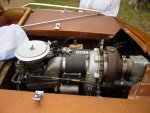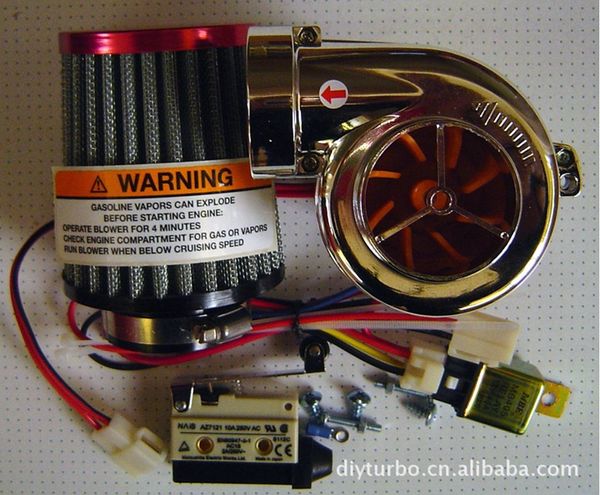Personally I wouldn't bother with adding anything but a bigger motor.
AND , yes. And we've beat that horse many times!
The propeller only knows how much torque that's applied to it and how fast it turns.
The engine size doesn't really matter if it's turning that prop at the required RPM.........AND as such, the amount of power is going to be essentially the same regardless of what is turning that prop.
If it's a tiny little 4 cyl engine turning at VERY high RPM through whatever gears it takes to turn the prop at a given RPM....... to produce a given boat speed,
That engine will be producing roughly the same power as a Big Block (at a lower RPM) turning the very same prop (with different gears) at the same RPM producing the same speed.
Some of that HP will be "lost" in the gear train. (in both gear boxes)
If superchargers are so parasitic why do the big boats run them?
Sterndrive boats and any other boats that have enclosed engine compartments have a rather unique exhaust requirements. The exhaust systems from the manifold-----out, MUST be cool enough so as not to cause a fire.
Turbochargers (NON-water jacketed) get hot enough to ignite anything around them (including vapors)
Belt or gear driven superchargers don't get very hot at all (other than friction losses and the increase in air temp due to pressure increase [ Gay-Lussac's Law!!.....can we even say that?])
BUT they ARE absolutely "parasitic". It takes a fair amount of HP to move large volumes of air while increasing the pressure.
One of the upper limits reached in aircraft piston engine technology was due to power loss in single and 2-stage blowers.
They were able to get more boost (and subsequently more power) by going to exhaust driven "blowers" (turbo-superchargers) because that exhaust was "free power" available to drive the blowers. leaving more available shaft HP to drive the prop.
Since there's few (if any) decent inexpensive turbocharger systems for boats, it's just easier to "bolt" on the supercharging.






















